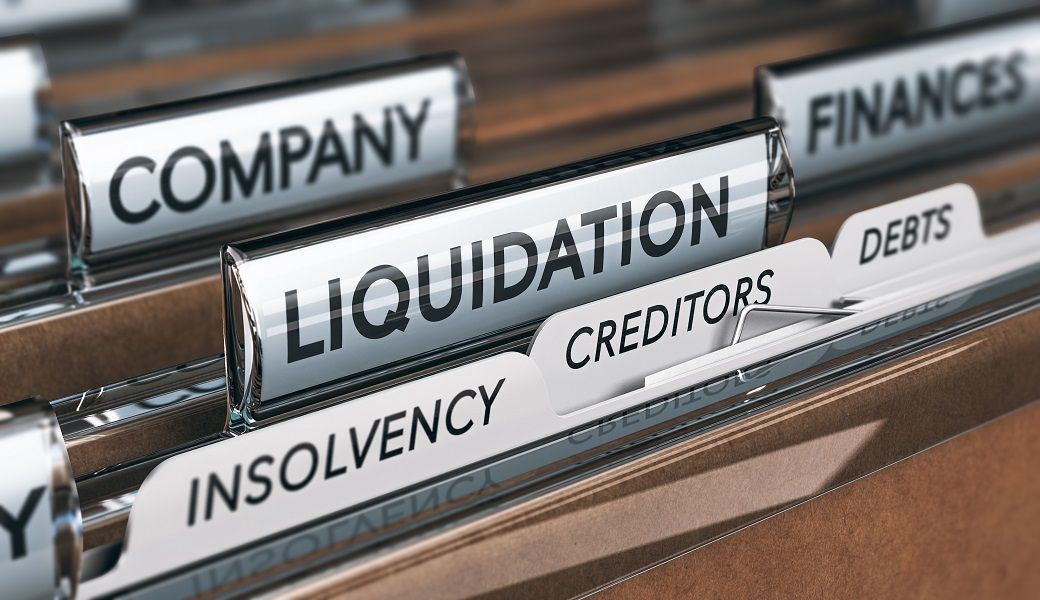Liquidation can be an intimidating process for any business owner, but the Creditors Voluntary Liquidation (CVL) option gives you a degree of control and transparency that could help ease the stress associated with a company’s financial troubles. If a business facing an insurmountable amount of debt, liquidation by creditors is a feasible option to shut down the company and safeguard the assets against creditors. Directors of a business who realize that their debts are far greater than their assets begin the process. When they decide to opt for the option of a CVL, directors can manage the situation and designate their own liquidators, and limit the impact on their employees and customers. While it’s not an easy choice to make Creditors’ voluntary Liquidation provides business owners with the chance to learn from financial mistakes in order for them to remain stronger in the future.

In the event that a company can no longer fulfill its financial obligations and is in need of liquidation in order to pay off any outstanding debts or end their business, this becomes necessary. The liquidation process for a business can be a lengthy and complex procedure, involving the sale of assets to pay debtors. It is crucial to be aware of the process of liquidation, and to find a reputable liquidation business to assist you.
There are several types of liquidation that companies can avail in the UK such as compulsory liquidation, voluntary liquidation and creditors voluntary liquidation. Liquidation depends on the needs of your business as well as the alternatives available.
Voluntary liquidation is initiated by directors of the company and shareholders when they feel that the company is insolvent and unable to trade. This type of liquidation tends to be more affordable and more straightforward than compulsory liquidation, which is initiated by court order.
A creditors’ voluntary Liquidation is a liquidation on a voluntary basis that can be initiated by creditors who consider the business to be insolvent. This type of liquidation allows the company to pay its creditors in a systematic manner, with the aid of an approved liquidator.
When liquidating a company the primary objective of a liquidator is to maximize the assets of the business to pay its creditors. The liquidator will dispose of the company’s assets, including equipment, inventory, as well as property and utilize the proceeds to pay off outstanding debts. Once creditors have been paid, any left over funds are paid to the shareholders of the company.
It is crucial to select the liquidation firm who has the knowledge and confidence to guide you through the process. Take note of these important aspects when choosing the right liquidator.
Experience and expertise: Select an agency with extensive expertise in the industry and a demonstrated experience in liquidations. Pick a business that has a team of insolvency practitioners licensed to provide assistance and advice.
Pricing transparency: Liquidation can be a complicated and expensive process. It’s crucial to choose the right company that has clear pricing. Choose a firm that provides detailed cost breakdowns in advance.
Professionalism and Integrity: Look for a company that’s professional and has integrity. You should choose a business that is registered with the appropriate regulatory agencies and adheres to a strict set of ethical standards.
The service you receive is individualized. Each business is different, and so your liquidation will be unique. Find a company who offers personal service and can customize their approach to your specific needs.
Availability and responsiveness In liquidation, it can be an extremely stressful and time-sensitive procedure and it is crucial to choose a firm who is responsive and available when you need them. Find a company that can provide 24/7 support as well as provide guidance and advice throughout the liquidation.
It can seem intimidating initially, but it could be a beneficial option to consider if having trouble with your business and need significant assistance. It is important to remember that it will not transform your company overnight. It is essential to adopt proactive steps. This could include contacting an independent expert insolvency consultant employing effective cost-cutting techniques in search of a customized solution and tackling ongoing costs. There is a way to save a business using debt relief, alternatives to restructuring, such as liquidation by creditors on voluntary basis and other techniques. All you require is the right team. Having an experienced professional by the side of you, providing honest advice is invaluable in times of transition. If CVL is a possibility for your business, make sure you’re informed and create a plan to achieve success. Financial stability can restore the confidence and security of your company.
For more information, click liquidation companies